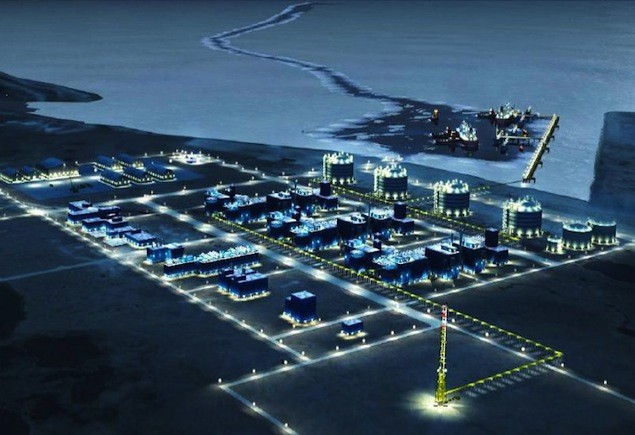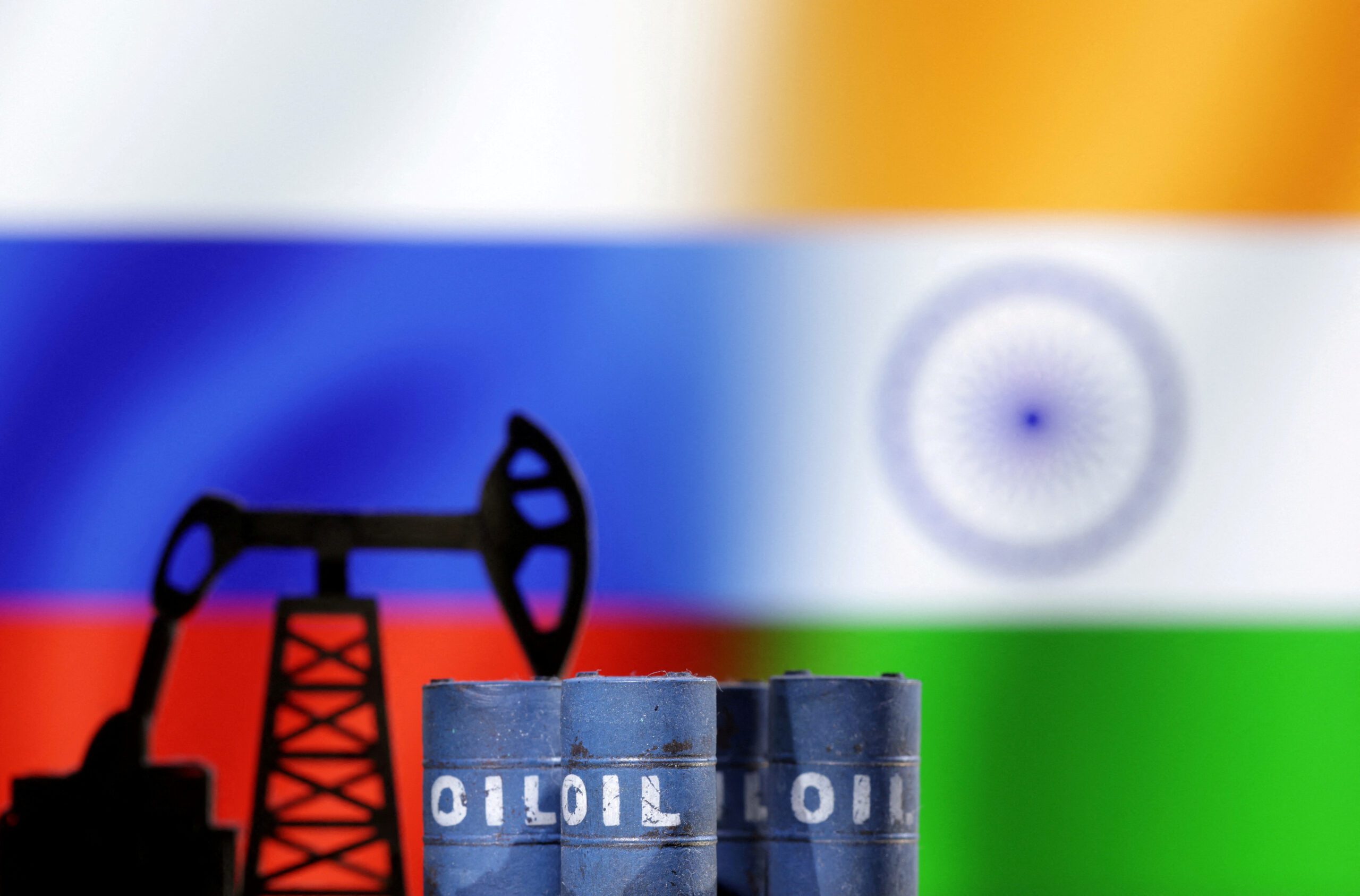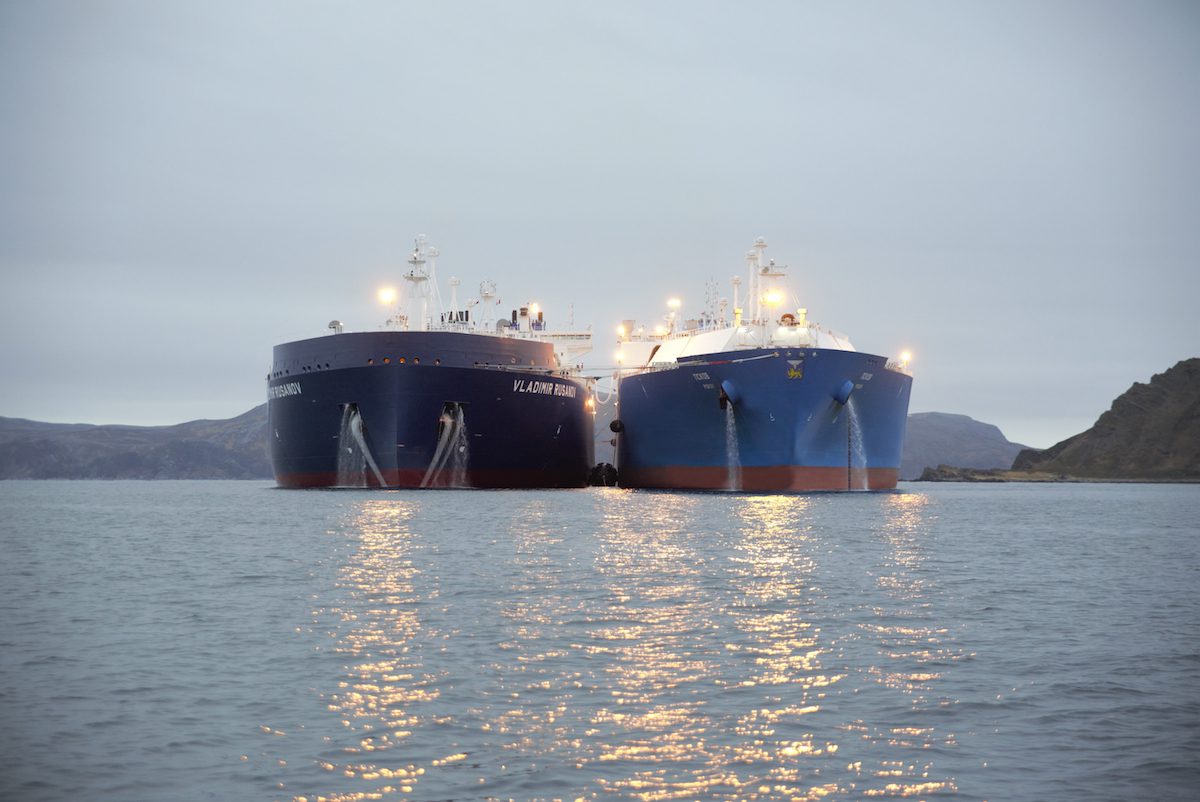An illustration of the planned Yamal LNG export plant.
 By Oleg Vukmanovic
By Oleg Vukmanovic
LONDON, April 11 (Reuters) – The partners in Russia’s Yamal liquefied natural gas project are in talks to ship cargoes to Britain and northwest Europe in winter, when heavy sea ice clogs routes to Asia, a Total official said.
“We’re negotiating with people who have terminal capacity in northwest Europe, including the UK at the moment,” said Jacques Besse, vice president of LNG shipping at Total, which is developing Yamal with Russian partner Novatek.
For Britain, Russian LNG shipments could help prevent a recurrence of a recent bout of near-record prices caused partly by inadequate deliveries of pipeline gas and of LNG cargoes from Qatar.
“The intention is to sell part (of the LNG) on the northwest European market and to export (the rest) through a terminal to more valuable markets,” Total’s Besse said in an interview on Thursday.
Under the plan, a fleet of around 14 LNG ice-breaking vessels will deliver Arctic gas from the project offshore northwest Siberia to northwest European terminals, either for eventual onward transport to Asia or for local consumption.
Existing Russian pipelines supply around a quarter of Europe’s gas needs, but the planned Yamal LNG export plant was intended to supply Asian markets, which offer higher prices and have so far received relatively small amounts of Russian gas.
The exact details of how much LNG will be sold to Europe and to which specific companies and terminals will be announced in a few months, Besse said.
Qatari LNG shipments to Britain plunged by 68 percent in January from a year earlier, according to the latest figures from shipping consultancy Waterborne, and supplies from Yamal could help fill part of that gap.
Exports from Yamal are due to start from 2016 and would deliver to Europe only in winter, when the North Sea Route (NSR) to Asia along Russia’s northern coast becomes impassable.
Most of the winter LNG arriving in Europe will be re-exported by Total and Novatek to clients in Asia, with the remainder sold to utilities that have import rights at UK, Dutch and other terminals in the region.
But the utilities also could decide to re-export the volumes to more attractive markets outside Europe, potentially reducing the benefits of extra supply to domestic consumers.
“Yamal LNG will use the terminals for transfer from ice-breaking ships to standard ships (which are faster and cost less to operate) … it is the intention of Yamal to sell to its own clients in Asia,” he said.
“The scheme would be through Europe in winter and through the North Sea Route in summer,” he added.
ARCTIC TRANSIT THIS SUMMER
Each of Yamal’s 14 estimated ice-breaking LNG carriers will cost between $185 million and $205 million to build, he said.
The project still faces challenges to get off the ground.
Novatek is lobbying to win the right to export LNG abroad, ending Gazprom’s monopoly as the sole Russian exporter. Russian officials are calling for an expansion of export rights to include other producers.
As for the European route, Prime Minister Vladimir Putin opposes LNG shipments to Europe because it could compete for market share with pipeline supplies from Gazprom. Thawing sea ice caused by global warming has attracted energy companies to drill in the Arctic Ocean, which is estimated to hold about 20 percent of the world’s as-yet undiscovered oil and gas, and has revived Soviet-era trade links such as the NSR that halve voyage times to Asia.
In a test in November, Gazprom made the first ever shipment of LNG through the NSR from Norway’s Snoehvit plant-currently the world’s most northern LNG export plant- to Japan.
Total may follow suit this year by sending its share of the LNG produced at Snoehvit through the NSR to Asia between the months of July and November, when the route is navigable, Besse said.
Shipments from Norway through the NSR to Asia shave nearly 3,000 nautical miles off the alternative Suez Canal trip, bringing potential cost savings and supporting the rationale for building Arctic LNG projects.
The French major will order two LNG tankers within the next two weeks that could, subject to a final decision, be reinforced to handle ice-strewn Arctic seas, Besse said.
The vessels will initially be used to ship LNG from new liquefaction plants under construction in the United States, at Sabine Pass in Louisiana, and at Ichthys in Australia. (editing by Jane Baird)
(c) 2013 Thomson Reuters, Click For Restrictions
Editorial Standards · Corrections · About gCaptain
This article contains reporting from Reuters, published under license.

 Join The Club
Join The Club











